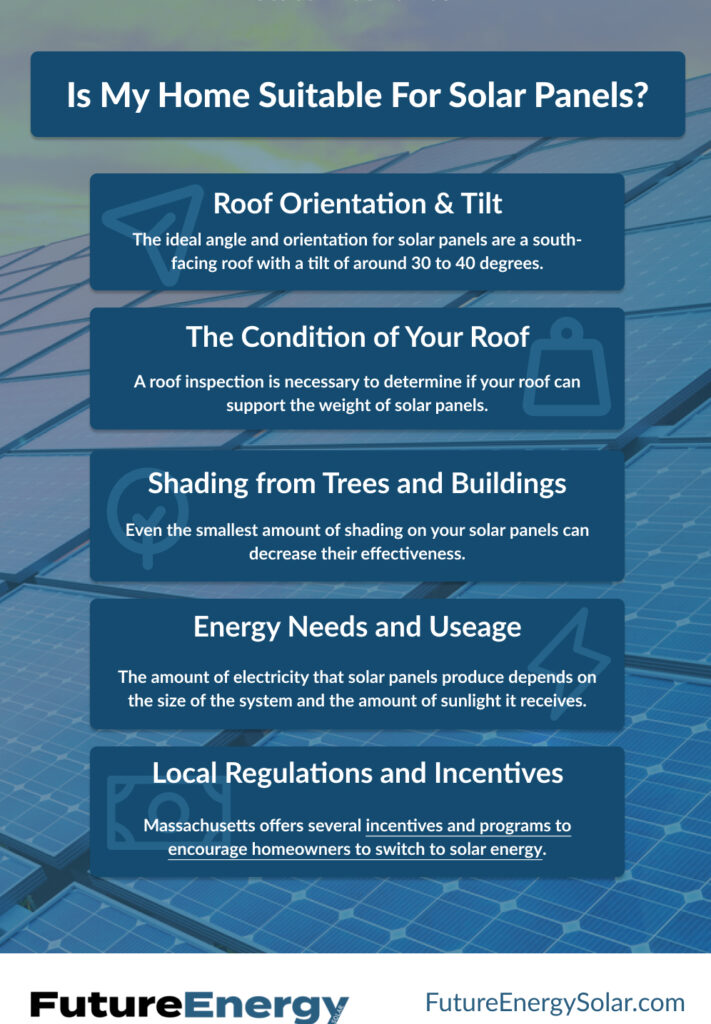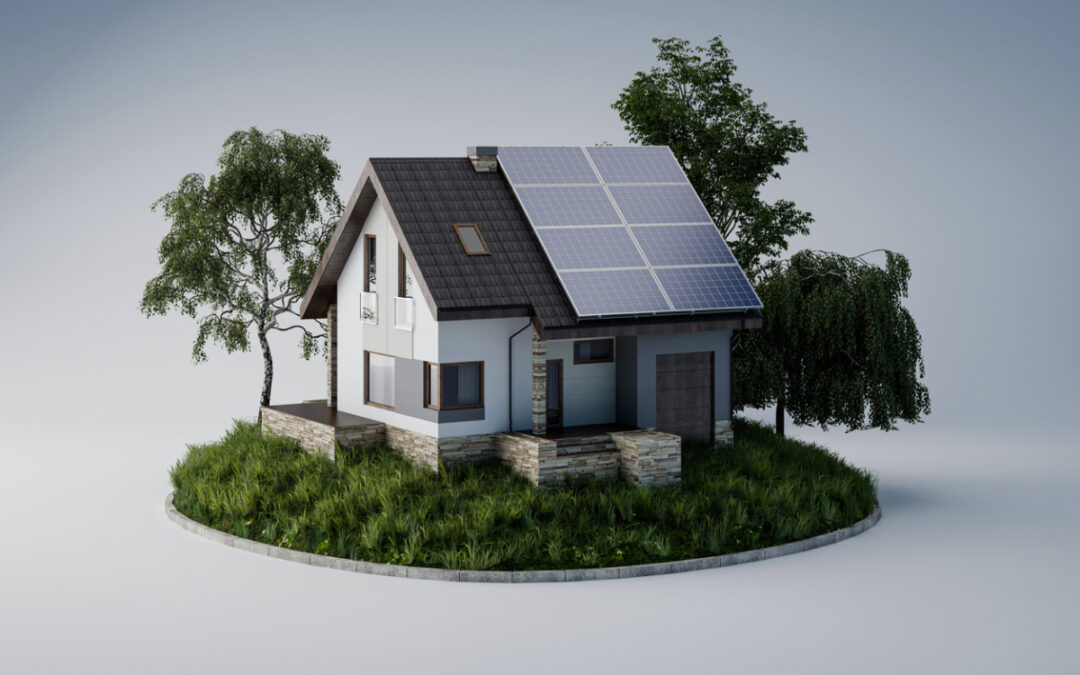We all know that Massachusetts has a reputation for being green. However, many homeowners are still hesitant to switch to solar energy, primarily because they’re not sure if their homes are suitable for solar panels. In this blog post, we will discuss the factors that determine whether or not your home is suitable for solar panels. We hope that after reading this, you’ll have a better understanding of what to expect when considering switching to solar energy.
Roof Orientation and Tilt
The orientation and tilt of your roof are essential factors to consider when installing solar panels. The ideal angle and orientation for solar panels are a south-facing roof with a tilt of around 30 to 40 degrees. However, a southwest or southeast-facing roof may be suitable in certain circumstances. But what if your roof doesn’t face south? Don’t worry, solar panels can still be installed, but the overall efficiency of your system may be reduced.
The Condition of Your Roof
Before installing solar panels, it’s vital to ensure your roof is in good condition. Your roof should be structurally sound and not damaged. A roof inspection is necessary to determine if your roof can support the weight of solar panels. Solar panels can last for up to 25 years, but you may need to replace your roof during that time. It’s also worth considering that some installers may not install solar panels on an older roof.
Shading From Trees or Buildings
Shading can have a significant impact on the efficiency of your solar panels. Even the smallest amount of shading on your solar panels can decrease their effectiveness. Inadequate shading can occur from nearby trees, buildings, chimneys, or any other obstruction that blocks the sun’s rays from hitting the solar panels. Before installing solar panels, it’s critical to evaluate the shading conditions on your roof.

Energy Needs and Usage
Installing solar panels is a significant investment. Therefore, it’s crucial to determine whether the potential output of your system meets your energy needs and usage. The amount of electricity that solar panels produce depends on the size of the system and the amount of sunlight it receives. Therefore, it’s essential to track your energy consumption over a period to determine the optimal solar panel system size for your home.
Local Regulations and Incentives
Massachusetts offers several incentives and programs to encourage homeowners to switch to solar energy. Before deciding on a solar panel installation, you should research available incentives, rebates and check local regulations. These programs could significantly impact the cost of the installation and reduce your overall investment.
Switching to solar energy is an excellent way to save money on your energy bills while reducing your carbon footprint. However, it’s crucial to evaluate your home’s suitability for solar panels before investing. Consider the orientation and tilt of your roof, the condition of your roof, shading, your energy needs and usage, as well as local regulations and incentives. With the help of a qualified solar installer, you can determine if solar panels are a feasible option for your home. We hope this blog post has helped you better understand the factors that determine whether your home is suitable for solar panels.

